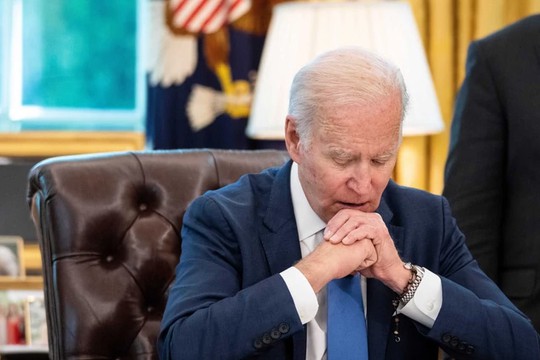Photo: The White House press-service
So Mr. Biden has taken to crisis management, trying to prevent the worst, even if he cannot answer the question of how, exactly, these two wars end, writes ‘The New York Times’.
Over the past five days, President Biden has been engaged in a very public demonstration of the struggles of managing two of America’s most difficult allies, President Volodymyr Zelensky of Ukraine and Prime Minister Benjamin Netanyahu of Israel, both leading countries that the president has vowed to defend, as long as it takes.
The conflicts they are engaged in could not be more different, born out of grievances that reach back decades. But by coincidence, both confrontations seem to be at critical turning points, that moment when it becomes obvious how starkly national interests are diverging — to say nothing of the political interests of three leaders clearly worried about their own hold on power.
Adding to the complexity of the problem, it is unclear in Washington exactly what an acceptable endgame might look in Ukraine or in Gaza.
Russia appears to be regaining momentum. The call for the total defeat of Hamas sounds like a rationale for perpetual war — and, in fact, Israeli officials have publicly declared the war in Gaza will likely continue to the end of the year, if not longer.
So Mr. Biden has taken to crisis management, trying to prevent the worst, even if he cannot answer the question of how, exactly, these wars end.
“Neither Ukraine nor Israel is a treaty ally,” said Aaron David Miller, a senior fellow at the Carnegie Endowment for International Peace and a longtime Mideast negotiator. He was referring to the status of the other 31 members of NATO, which are obliged to come to one another’s defense, and the formal American pacts with Japan, South Korea, the Philippines and others. “And yet we are fully invested in how to get these wars to the next phase, a phase where we lessen the violence, even if we can’t articulate a realistic vision of how it stops.”
The White House revealed that Mr. Biden had carved what it termed a narrow exemption to his 27-month-long insistence that American weapons can never be shot into Russian territory. It is a rule he established at the outset of the war in Ukraine to “avoid World War III.”
It was one thing, Mr. Biden told his aides, to give the Ukrainians the weaponry they need to protect their own homeland. But letting them launch American artillery rounds and rockets and missiles over the border, where they could take the lives of not only soldiers but also civilians, and wipe out Russian infrastructure, could escalate into a direct American confrontation with a nuclear-armed adversary.
Mr. Blinken came back convinced, and in a Friday night Oval Office meeting with Mr. Biden, he and Jake Sullivan, the national security adviser, along with Defense Secretary Lloyd J. Austin III, convinced Mr. Biden that he needed to lift the restrictions at least in the border areas around Kharkiv, Ukraine’s second-largest city. Otherwise, they warned, Russia could well start taking back significant parts of territory.
John F. Kirby, a spokesman for the National Security Councilsaid U.S. policy against “long range strikes inside of Russia has not changed.”
In private, Mr. Biden’s advisers concede that American and Ukrainian priorities are diverging. At this point, Ukraine has nothing left to lose from escalating with Russia. Mr. Biden still does: Inside the White House, the obvious concern is that President Vladimir V. Putin will roll out battlefield nuclear weapons, trying to convince the world that if Ukraine keeps dropping American-made bombs and rockets on Russian territory, he will not hesitate to use the ultimate weapon on Ukraine.
The day after Mr. Biden allowed limited strikes on Russian territory, he made a much more public move to force the hand of Mr. Netanyahu, with whom his relationship has turned just short of poisonous. Mr. Biden gave a public speech in which he endorsed what he called an Israeli plan to win the release of hostages and end the fighting in Gaza. “It’s time for this war to end, for the day after to begin,’’ he said.
It was unusual, to say the least, for an American president to be spelling out the details of an Israeli plan: Diplomats are trained to avoid speaking for other countries. But in this case, that was the point.
So the president was determined to make Mr. Netanyahu admit to ownership of a three-phased peace plan, one that could stretch out for years.
Mr. Netanyahu did not exactly deny that he had signed off on the plan, but he did not admit it, either. “He’s dancing,’’ said Shalom Lipner, a senior fellow at the Atlantic Council who worked for seven Israeli prime ministers over 26 years, including Mr. Netanyahu. “He hasn’t disclaimed it. But he hasn’t embraced it, either.”
So the two men have taken to public pronouncements that make clear their differences of strategy.
…So, is Biden worth risking a nuclear conflict for the sake of Ukraine, which is not even an ally of the United States, and whose former president has lost the legal right to lead the country?
read more in our Telegram-channel https://t.me/The_International_Affairs

 10:24 06.06.2024 •
10:24 06.06.2024 •























